It's hard to believe the news of Patricia Wrightson's death. No doubt like all her friends, I thought she would live forever - with that sharp, searching intelligence, that gravelly voiced, old fashioned correctness of delivery, that passion for justice, that kindness and modesty.
Few Australian writers for young people have equalled and none have surpassed her achievements. Today, writers for young people sometimes begin their publishing careers when they are barely out of school themselves - and that's great. It might not earn you much money, but being a fulltime writer for children is no longer regarded as a virtual impossibility in Australia. This week, in fact, books by Australian children's writers and illustrators are being sought by publishers from all over the world at the annual children's book fair in Bologna, because they are energetic and varied, they tell compelling stories and they are brilliantly written.
Patricia Wrightson set out to provide something different from the mainly British books that were available to Australian children after World War 2. But it was such a risk at the time. The idea of children in Sweden, Slovenia, Korea, Brazil - not to mention those behemoths, the US and the UK - reading stories about young Australians was almost unheard of.
Both the United Nations and Australia's Children's Book Council were set up in 1945, the year the war ended, with an ideal (no doubt too simple, like all ideals) of creating a different future for humanity. If the Children's Book Council had an edge over the UN, it was in the hope that if you changed children's books, you could change children's minds; change children's minds and the adults they would become, and you might change the world - and never see the unspeakable horrors of world war again.
Like the Jindyworobak poets before her, Wrightson thought that it might be possible to reconcile Indigenous and non-Indigenous Australian cultures and create a new kind of pan-Australian narrative, in which the human characters from both cultures were strongly aware of and influenced by the metaphysical world that Indigenous Australians had known for 60 000 years. It was a project in total alignment with the slogan for the first children's book week in 1946: 'United Through Books'. She was creating a new Australia of the imagination.
Her first novel, The Crooked Snake, was awarded Book of the Year in 1956 by the Children's Book Council. Wrightson was 35. Today that might be regarded as a late start for a writer, but even in this first book her writing shows the advantages of having waited: there's a maturity in her understanding of family life, children's relationships with one another and the natural environment. She went on to win Book of the Year a further three times and to win many other awards, including the Hans Christian Andersen Award, the most prestigious international award for children's literature. No other Australian writer has won it.
Although from that first book you can see Wrightson developing her career-long passion for the integration of Australian mythologies, it is in The Nargun and the Stars (Book of the Year 1974) and The Ice is Coming (Book of the Year 1978) that it is achieved with greatest success. Of course by this time Indigenous Australians were at last becoming a political force and their own voices in the arts were so strong and unique that Wrightson's project began to appear inappropriate. As women and gay and lesbian people in the 70s insisted on the right to speak for themselves, Indigenous Australians needed no one to speak for them. So the idea of a non-Indigenous woman writing about Indigenous subject matter to some readers began to feel like cultural appropriation, imperialist exploitation all over again.
Twenty-five years later, Clare Bradford would give a scathing account of Wrightson as not just politically incorrect but racist: a judgement that gave no concession to the writer's stated intentions or historical context. By then Wrightson herself had realised that her project should now be laid aside: there was no longer a need to remind non-Indigenous Australians about the richness of the land's first cultures, which so many of them had destroyed. Indigenous writers and artists had made her ideals irrelevant.
She continued to publish beautiful, poetic books such as Shadows of Time, which is a kind of coda to her major work, and to write short chapter books for much younger readers that returned to the politically safer ground of earlier novels such as I Own the Racecourse. Although her reputation intimidated reviewers and interviewers, Patricia Wrightson was a private and unassuming woman, who always spoke of her career as an apprenticeship. She answered the endless questions about her work thoughtfully, as if she were being asked for the first time, with the true humility of one who is always learning.
And now, she rides the wind of memory and enters the realm of pure story, like those wonderful, unforgettable spirits - those shadows of time - above the land she loved so much. Loved companion of so many readers, she has given us books for the journey together, some of them now out of print in hard copy and available only in the digital environment that was strange to her but not to her young readers. At the end of The Nargun and the Stars, the great spirit that moves across the landscape comes to rest, apparently defeated and silenced by the human forces of 'development'. But in the concluding line it utters the name of the young protagonist, and Patricia Wrightson says 'the name was only a whisper in the dark'. The old spirit lies there waiting - like the storyteller; like her book.
It's such a privilege to have had Patricia Wrightson's stories on our journey - even moreso for some of us, this wise and strong and gentle woman herself - and to be able to whisper along with her readers across the world, 'Dear friend, fare well.'
Wednesday, March 24, 2010
Subscribe to:
Post Comments (Atom)

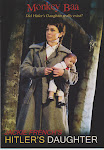
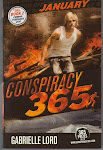
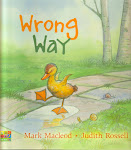
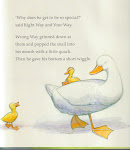
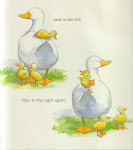

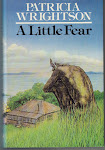

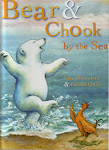

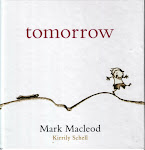
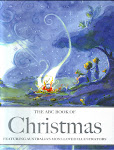

A Little Fear - the perfect Book of the Year for appeal to children and adults.
ReplyDeleteVale Patricia and well said, Mark.
Margaret Robson Kett
Thanks, Margaret. I love Mrs Tucker's independence and her wonderful relationship with Hector the dog. It's such a defiant stamp of a book against anyone who writes off the aged.
ReplyDeleteThanks Mark, for your very eloquent and contextualised comments about Patricia Wrightson, and the publishing industry & academia. The only other Australian to have won a HCA is well and truly alive and kicking (Robert Ingpen no less), and so maybe now is the time for some wise Australian publisher to bring back Wrightson's work, re-illustrated by Ingpen, so that a new generation of Australians can benefit from these timeless and profound books.
ReplyDeleteWiki could do with some of your wisdom on PW as well, I noticed she's only a 'stub' and she deserves to be much more than that.
Sarah Mayor Cox
PS. You're bang on about Conspiracy 360 too, our household of male reluctant readers tick off the days until the month rolls over and the next installment comes out
Beautifully said, Mark. I'll put a link to the blog in my Bulletin (going out today).
ReplyDeleteI don't think that 'indigenous writers have made her irrelevant' though. For one thing her stories deserve to last, and for another many indigenous writers still feel that their stories need to be integrated into mainstream Australian culture through non-indigenous as well as indigenous voices. I was there when the indigenous playwright, Jack Davis, told Patricia to carry on just as you are doing. He said we need more European Australians telling our stories.
Also people who want to set fantasy in the Australian bush will continue to want to use the native spirits of the land, just as Patricia did. Otherwise they have to import leprechauns and fairies - who just don't sit very well here!
Anyway thanks for the beautiful memoir of her.
Virginia
Dr Virginia Lowe
Create a Kids' Book
http://www.createakidsbook.com.au
PO Box 2, Ormond Victoria 3204
ph: 03 9578 5689
mob: 0400 488 100
"Stories, Pictures and Reality: Two children tell" (Routledge 2007)
Patricia Wrightson was a spirited and significant author. Great tribute Mark.
ReplyDeleteIt's three years since Patricia Wrightson died in the same month as my father. He was a few years younger - this is probably why her death passed me by. I saw Patricia Wrightson speak in Canberra and remember her strong and kind presence and interesting talk. I then read Shadows of Time which I love and have never forgotten. I will re-read it. Reading Coonardoo by Pritchard as a teenager had a similar effect on me. Writers who felt and appreciated the history of Australia's first people and attempted to show that the history didn't belong to the colonial masters helped build a bridge of understanding for us even if they are disapproved of for their interpretation.
ReplyDelete